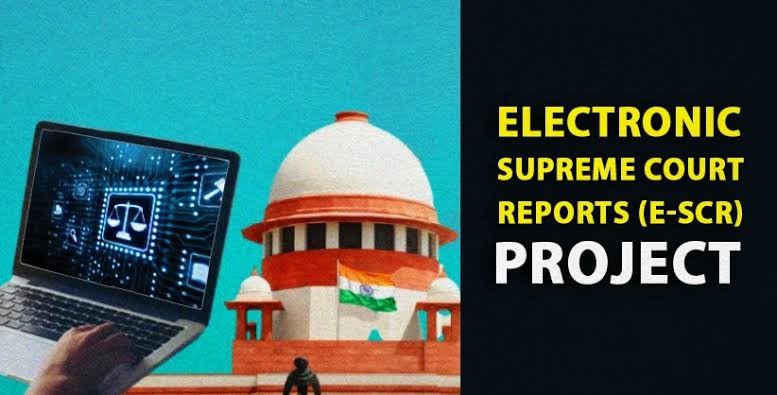
Electronic version of the Supreme Court Reports (e-SCR)

28.11.2023
Electronic version of the Supreme Court Reports (e-SCR) , Daily Current Affairs , RACE IAS : Best IAS Coaching in Lucknow
|
For Prelims: About the e-SCR portal,National Judicial Data Grid Portal, For Mains Paper:Importance,Cases pending in Supreme Court,About National Judicial Data Grid |
Why in the news?
A Hindi version of the e-SCR portal was launched recently as part of Constitution Day celebrations.
About the e-SCR portal:
- It was an initiative by the Supreme Court (SC) of India to provide the digital version of the apex court's judgements in the same manner they are reported in the official law report.
- It provides free access to about 34,000 judgements of the SC to lawyers, law students, and the common public.
- These verdicts will be available on the apex court website, its mobile app, and on the judgement portal of the National Judicial Data Grid (NJDG).
- It is a free service available for lawyers across the country.
- The Supreme Court has developed a search engine with the help of the National Informatics Centre comprising elastic search techniques in the database of e-SCR.
- The search facility in e-SCR provides for free text search, search within search, case type and case year search, judge search, year and volume search, and bench strength search options.
About National Judicial Data Grid Portal:
- The National Judicial Data Grid Portal has been launched by courts across the country from September 14, 2023.
- This portal is a national repository of data related to cases pending and disposed of in the Court.
- NJDG is a database of 18,735 orders, judgments and case details of District and Subordinate Courts and High Courts, created as an online platform under the e-Courts Project.
- The main feature of this portal is that the data is updated in real time and has detailed data up to the taluka level.
- NJDG has a repository of data on pending cases and their disposal from Taluka to National level.
- Till now, only the data up to the High Court level was available on the portal.
About National Judicial Data Grid:
- NJDG was created as part of Phase II of the e-Courts project, a centrally sponsored scheme.
- With computerization of over 18,735 courts across the country, the data is integrated with NJDG.
- The platform has been developed by the National Informatics Center (NIC) in close coordination with the in-house software development team of the Computer Cell, Supreme Court Registry with an interactive interface and analytics dashboard.
- At present, from this grid we can get information about the status of 23.81 crore cases and more than 23.02 crore orders/decisions.
- NJDG, implemented under the aegis of the e-Courts project, has been recognized as a significant innovation under the Ease of Doing Business initiative of the Government of India.
Importance:
- Uploading of data on NJDG will ensure transparency and accountability in the judicial sector.
- NJDG works as a monitoring tool to identify, manage cases and reduce pendency.
- It also helps in identifying specific obstacles in judicial processes. For example, if the number of land disputes increases in a particular state, this helps policy makers to see if the law needs to be strengthened.
- It provides data tools to courts to reorganize data and dispose of the oldest cases.
- It also helps in generating inputs related to particular areas of law. For example, to track cases related to land disputes, land records data of 26 states has been linked with NJDG.
- This will create better efficiency in the judicial system.
- This will increase coordination.
- This will help in taking quick and effective decisions.
- Its use will ensure maximum deployment of resources and manpower.
Cases pending in Supreme Court:
- A total of 80,501 cases, including 62,946 civil and 17,555 criminal cases, are currently pending in the Supreme Court by the year 2023.
- In August 2023, 5,412 cases were filed in the Supreme Court and 5033 cases were disposed of.
- In the Supreme Court, 585 cases are pending before a three-judge bench, 288 cases before a five-judge bench, 21 cases before a seven-judge bench and 135 cases before a nine-judge bench, all of which are civil cases.